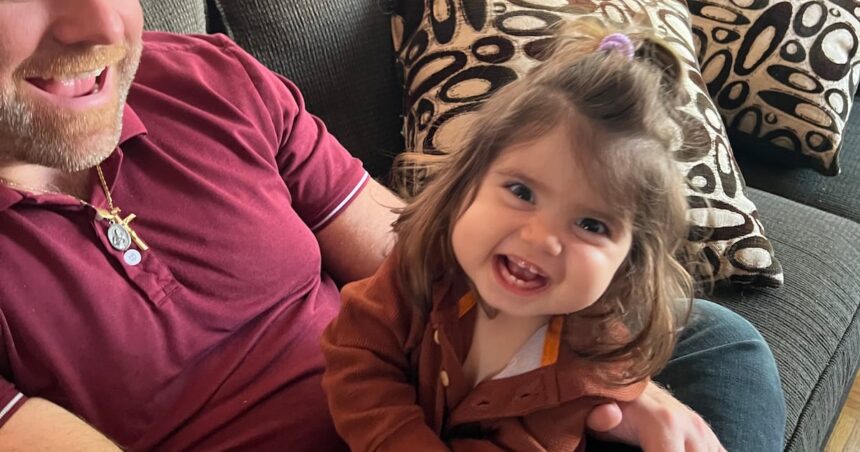The morning routine at the Lambert-Bissonnette household in Montréal’s East End starts well before dawn. For little Élise, just two years old, each day begins with a complex regimen of medical procedures that most adults would find overwhelming. Born with a rare kidney condition, this vibrant toddler faces a life-threatening situation that has mobilized her parents into an extraordinary public appeal.
“We never imagined having to ask strangers to consider giving a part of themselves to save our daughter,” explains Marie-Ève Lambert, Élise’s mother, as she prepares her daughter’s morning medications. “But here we are, desperately hoping someone compatible will step forward.”
Élise suffers from congenital nephrotic syndrome, a condition that has progressively damaged her kidneys since birth. After months of deterioration, doctors at CHU Sainte-Justine have informed the family that a transplant has become urgent. What makes their situation particularly challenging is the need for a living donor rather than waiting on the provincial transplant list.
Dr. Sophie Tremblay, pediatric nephrologist at Sainte-Justine, explains why a living donor is critical in this case: “Children Élise’s age have much better outcomes with living donor kidneys. The organs begin functioning immediately and typically last longer than those from deceased donors.”
The family launched their appeal through social media last month, creating the “Un rein pour Élise” campaign that has resonated throughout Québec. Their story highlights the continuing organ donation crisis in our province. According to Transplant Québec, approximately 800 people are currently waiting for organ transplants across the province, with kidneys being the most needed organ.
“We’ve received dozens of calls from people wanting to help,” says Philippe Bissonnette, Élise’s father. “The outpouring of support from complete strangers has been overwhelming, truly reflecting Montréal’s community spirit.”
For potential donors, the process begins with preliminary screening for blood type compatibility. Élise has type O blood, meaning she can only receive from other type O donors. Those who pass initial screening undergo comprehensive medical evaluation to ensure donation poses minimal risk to their own health.
When I visited the family’s modest Montréal-Nord apartment, Élise was playing with colorful blocks on the living room floor. Despite her medical challenges, her bright eyes and infectious laugh momentarily mask the gravity of her condition. The walls are decorated with cards and messages of support from across the province.
“She doesn’t understand what’s happening, of course,” Marie-Ève says, watching her daughter. “Some days are harder than others with the dialysis, but she remains surprisingly resilient. Children adapt in ways that continually amaze us.”
The process of finding a compatible kidney donor involves extensive testing. Potential donors must be in good health, typically between 18-70 years old, with normal kidney function. Family members were tested first, but none proved suitable matches.
Dr. Michel Paquet, director of Transplant Québec, notes that living donation rates in Québec have improved but still lag behind other provinces. “We need to continue addressing the barriers to living donation, including better support systems for donors during recovery and improved public education about the process.”
The Lambert-Bissonnette family’s challenge reflects broader issues within our healthcare system. The pandemic has further complicated organ transplantation programs across Canada, creating backlogs and delays that disproportionately affect pediatric patients.
For those considering donation, health officials emphasize that most donors lead completely normal lives with one kidney. Recovery typically takes 4-6 weeks, and most donors return to their regular activities without restrictions.
“We often hear from donors that giving an organ was among the most meaningful experiences of their lives,” says Caroline Martin, transplant coordinator at McGill University Health Centre. “The psychological benefits of knowing you’ve saved someone’s life are profound.”
As winter settles over Montréal, the family continues their search while managing Élise’s complex medical needs. The community response has been heartwarming, with local







